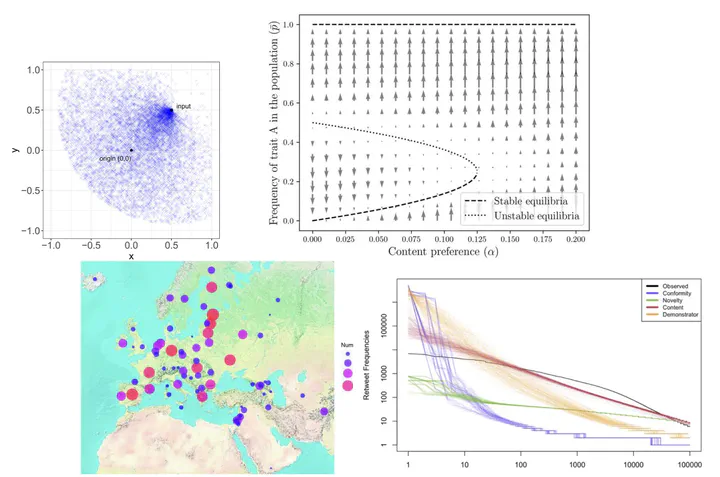Cultural evolution and cultural attraction

Much of my work is inspired by the cultural attraction theory framework, developed within the so-called Paris School of cultural evolution. This approach views culture not mostly as something copied and transmitted, but as something continually reconstructed through individual cognition and interaction. When ideas, behaviours, or artefacts are transmitted, they are not reproduced perfectly — they are transformed in systematic ways by our psychological biases, inferential processes, and communicative contexts.
From this perspective, cultural stability and change emerge from the interaction between individual cognitive tendencies and population-level dynamics, rather than from faithful imitation alone. This view contrasts with more traditional “selectionist” models of culture, and instead highlights the creative, reconstructive nature of cultural transmission. This paper, which attempts to build a bridge between the approaches, may be a good starting point to understand what is at stake.
I have developed models inspired by cultural attraction theory, showing that cultural stability can emerge without copying or selection, or that stable individual tendencies can override social learning forces.
I have also tested predictions of the cultural attraction view using large-scale datasets from folktale complexity, to online misinformation to understand how psychological and ecological factors jointly shape cultural evolution.
I am also generally interested in the related topic on how social and individual learning interact, for example how, contrary to the widespread belief that sees humans as gullible, we tend to be wary social learners, or even discard social information when useful.